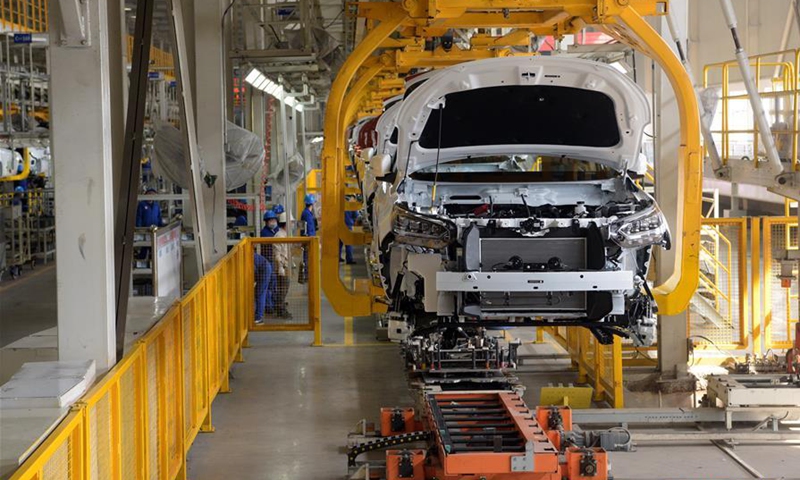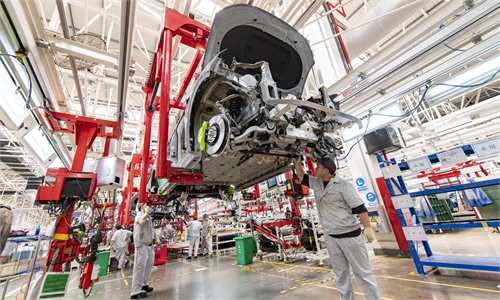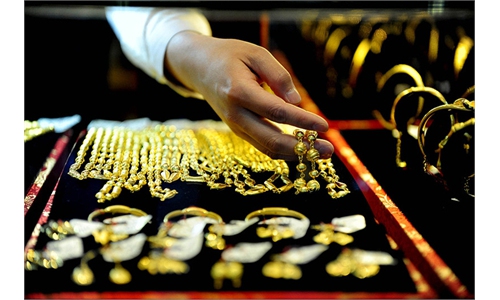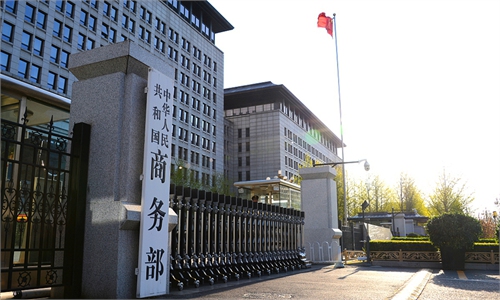BYD responds to reported 10% price cut targets on its suppliers, claims it is not mandatory

Workers work on the assembly line at a factory of vehicle manufacturer BYD Auto in Xi'an, northwest China's Shaanxi Province. File photo: Xinhua
Annual price negotiations with suppliers are customary in the automotive industry, Li Yunfei, general manager of Chinese carmaker BYD's Brand and Public Relations Department, said on Wednesday. The post came after a leaked e-mail sent from BYD to its suppliers showed that the automaker asked suppliers to reduce prices by 10 percent from January 1, 2025.
"We put forward price reduction targets for suppliers based on large-scale procurement, which is a non-mandatory requirement. We can negotiate," said Li on social media platform Sina Weibo.
BYD asked its suppliers to cut prices, several domestic media reported on Wednesday, citing a leaked e-mail dated Tuesday from BYD, whose authenticity the Global Times cannot verify.
According to the screenshot of the e-mail published by media, BYD said that the company is expected to surpass the sales mark of 4.2 million new-energy vehicles (NEVs) in 2024. BYD's sales continued to rise thanks to technological innovations, scale advantages and a low-cost supply chain.
In 2025, the competition in the NEV market will be more intense, and the entire supply chain needs to work together and continue to reduce costs. BYD asked the relevant suppliers to reduce the prices of their products by 10 percent from January 1.
A publicly circulated e-mail from a supplier sent to BYD, whose authenticity the Global Times cannot verify, said that the company had received BYD's notice, but said it was "strongly dissatisfied and solemnly protesting and that the request for a price reduction is unacceptable."
An industry insider from a Chinese auto part company, who declined to be named, told the Global Times on Wednesday that a price adjustment for suppliers every year is a "general rule" in the automobile industry.
"The annual price cut for auto suppliers usually ranges from 3 to 5 percent. The price cut differs for different suppliers. Typically, the price cut for traditional components that are more mature in the industry would be less. However, for relatively new parts, such as parts related to intelligent functions, the price cut would be larger," said the insider.
In 2025, BYD is expected to sell more than 5 million NEVs, accounting for about 15 percent of the car market in China, domestic news portal yicai.com reported on Wednesday, citing an anonymous executive from an auto parts company.
On Wednesday, the share prices of some of BYD's suppliers dropped after the leaked e-mail became widely circulated online. Alnera Aluminium Co Ltd closed 1.89 percent lower and Chongqing Sulian Plastic Co Ltd closed 0.6 percent down, with their share prices at one point dropping by more than 3 percent during Wednesday trading.
Alnera Aluminium, which is mainly engaged in aluminum alloy components for the NEV battery system, is highly dependent on BYD. According to its publicly released prospectus, the company's sales to BYD in 2023 accounted for 80.46 percent of its total revenue.
Global Times



